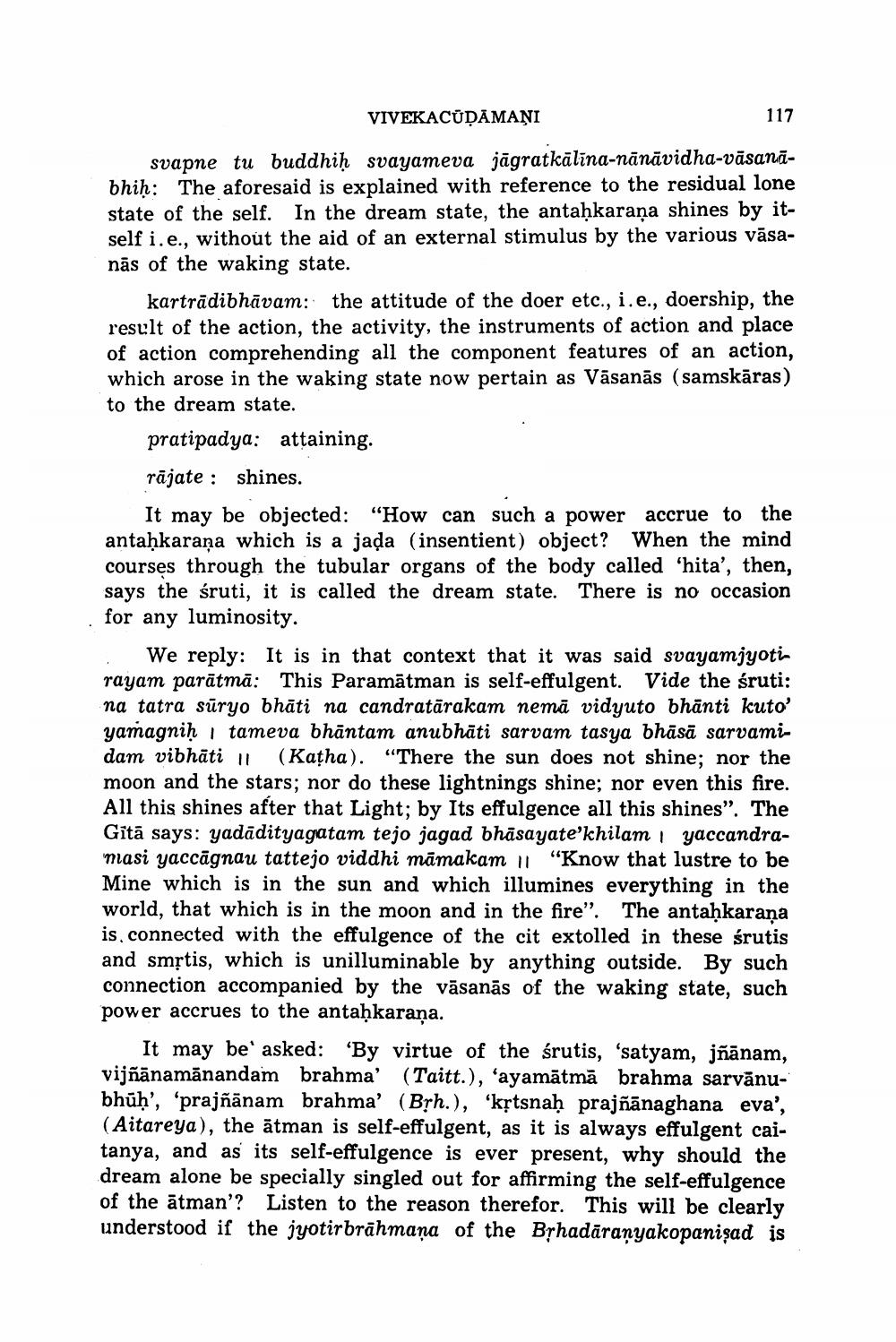________________
VIVEKACŪDĀMAŅI
117
svapne tu buddhiḥ svayameva jāgratkālina-nänāvidha-vāsanābhiḥ: The aforesaid is explained with reference to the residual lone state of the self. In the dream state, the antahkarana shines by itself i.e., without the aid of an external stimulus by the various vāsanās of the waking state.
karträdibhāvam: the attitude of the doer etc., i.e., doership, the result of the action, the activity, the instruments of action and place of action comprehending all the component features of an action, which arose in the waking state now pertain as Vāsanās (samskāras) to the dream state.
pratipadya: attaining.
rājate : shines.
It may be objected: "How can such a power accrue to the antahkarana which is a jada (insentient) object? When the mind courses through the tubular organs of the body called 'hita', then, says the śruti, it is called the dream state. There is no occasion for any luminosity.
We reply: It is in that context that it was said svayamjyotirayam parātmā: This Paramātman is self-effulgent. Vide the śruti: na tatra sūryo bhāti na candratārakam nemā vidyuto bhānti kuto' yamagniḥ i tameva bhāntam anubhāti sarvam tasya bhāsā sarvamidam vibhātill (Katha). "There the sun does not shine; nor the moon and the stars; nor do these lightnings shine; nor even this fire. All this shines after that Light; by Its effulgence all this shines". The Gitā says: yadādityagatam tejo jagad bhāsayate'khilam yaccandramasi yaccāgnau tattejo viddhi māmakam ll “Know that lustre to be Mine which is in the sun and which illumines everything in the world, that which is in the moon and in the fire”. The antahkarana is, connected with the effulgence of the cit extolled in these śrutis and smrtis, which is unilluminable by anything outside. By such connection accompanied by the vāsanās of the waking state, such power accrues to the antahkaraņa.
It may be asked: 'By virtue of the śrutis, 'satyam, jñānam, vijñānamānandam brahma' (Taitt.), 'ayamātmā brahma sarvānubhxh', 'prajñānam brahma” (Brh.), “krtsnah prajñānaghana eva, (Aitareya), the ātman is self-effulgent, as it is always effulgent caitanya, and as its self-effulgence is ever present, why should the dream alone be specially singled out for affirming the self-effulgence of the atman'? Listen to the reason therefor. This will be clearly understood if the jyotirbrāhmana of the Brhadāranyakopanişad is




